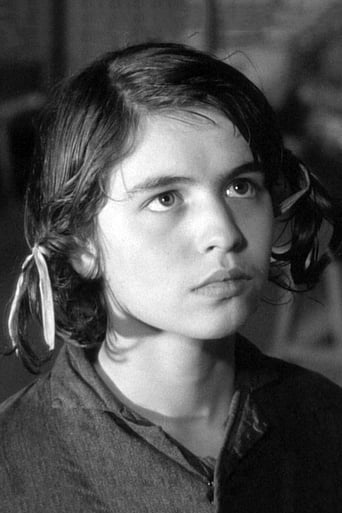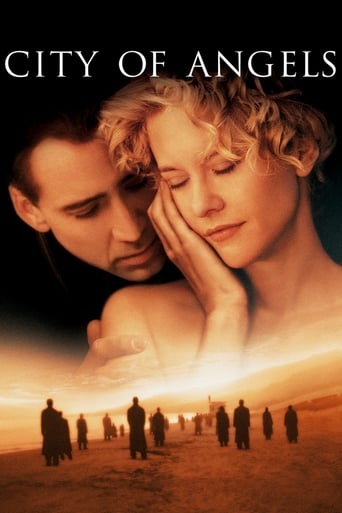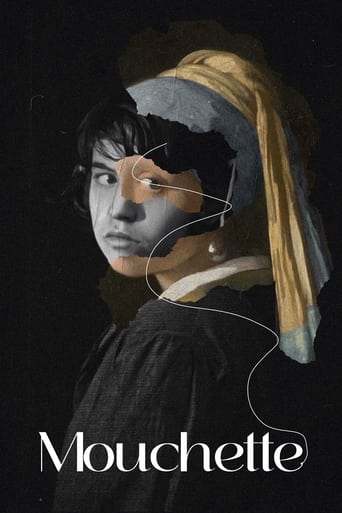
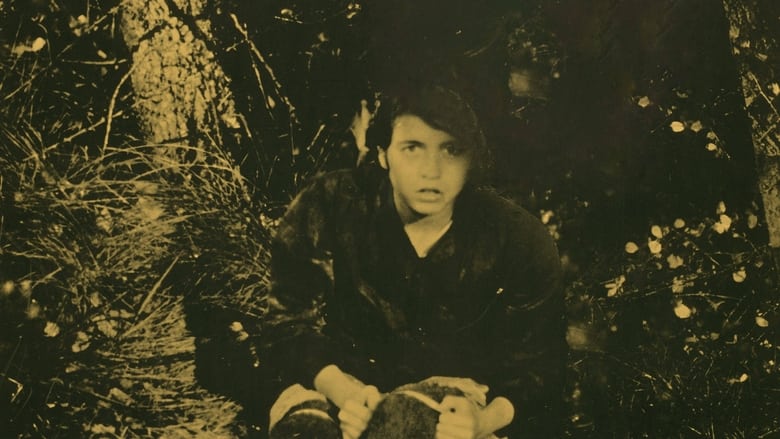
Mouchette (1970)
A young girl living in the French countryside suffers constant indignities at the hand of alcoholism and her fellow man.
Watch Trailer
Cast
Similar titles

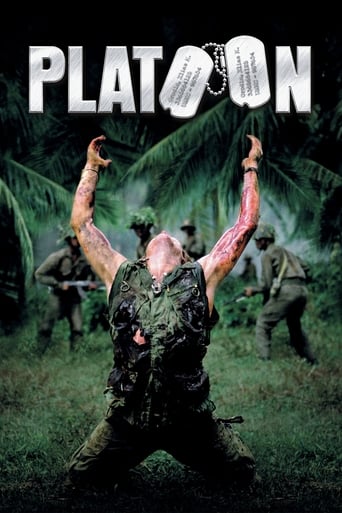

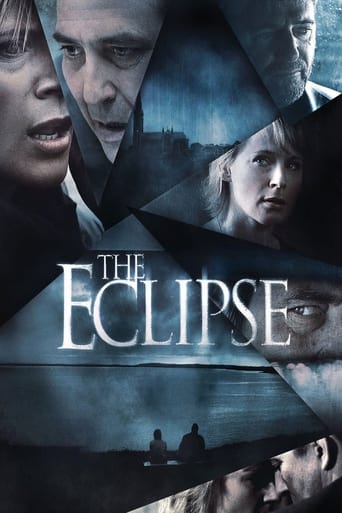
Reviews
Truly Dreadful Film
It’s sentimental, ridiculously long and only occasionally funny
Let me be very fair here, this is not the best movie in my opinion. But, this movie is fun, it has purpose and is very enjoyable to watch.
Great example of an old-fashioned, pure-at-heart escapist event movie that doesn't pretend to be anything that it's not and has boat loads of fun being its own ludicrous self.
Mouchette is a young girl living in an indeterminate village in France. Her mother is dying, her younger sibling needs constant care and her father is an abusive drunk. Her life consists of going to school, where she will never fit in because of her one piece of clothing and taciturn behaviour, and then going home through the fields next to the school.Mouchette's expressions tell all you need to know. She speaks perhaps a dozen words throughout the film but you feel her joy as she is allowed to play bumper cars at the carnival, to her frustration after her father refuses her any more amusement, to her fear and agony as she falls victim to a man she thought she could trust. In an environment where the church and patriarchy hang above any woman's head, this is not an easy life by far.The film reaches its zenith when Mouchette has to hide from a heavy rainstorm on the way back home. She loses one of her galoshes and a poacher named Arsène (who splendidly recreates an epileptic seizure), takes her to his cabin to warm her and speak to her about his fight with the gamekeeper. The price for his help is enormous and breaks the young girl beyond repair. She tries to speak to her mother about it, but mother is dying. Her father and brother mistrust her. When her mother dies, finally the neighborhood shows a little compassion, but this turns to judgment and even a gift of new clothing cannot reconcile her to her peers.The final scene is epochal, with Mouchette rolling around in the grass (apparently pleasurably) before we see she is trying to reach a certain area, to tragic results.Mouchette is suffering, isolation and a small dash of hope, and a must see film.
My Bresson baptism, with Mouchette: and it underwhelms. I'm sure I picked up Mouchette on strong recommendations: but it backfired.Shot in black and white (1967), perhaps to accentuate the despair and and hopelessness of the theme, is a tactical mistake. I'm sure there are things you can do with black and white to accentuate particular objects, emotions, situations: as in Hitchcock's movies. Here, we are treated to a washed out monotone of colour which does nothing for the many scenes shot in apparently verdant woods. Contrast was poor throughout, sharpness non existent: colour was a mismanagement.Nadine Nortier is miscast as Mouchette. She has presence, but no qualia. Utterly emotionless throughout, even when she is crying, less of an enigma and more of a non person. What is she thinking, what is she about, what makes her tick? The blank canvass of her acting output throws up no answers. Marie Cardinal as her mother, in only a few short scenes with few words does a much better job of fleshing out a character: we, as the audience, get what she is about: a disillusioned, weary woman: physically and spiritually ill. Mistreated by life and men, she is ready to depart this life. Her agony , in fact her life story is played out beautifully in an understated way by Cardinal. Nortier does not come even close with her performance.Mouchette is supposed to be a suffering martyr of some kind, but 'm not sure why. Yes, the family is poor, mum is sick and dad goes out at night to deal in contraband, but is that enough to warp your mind and deaden your soul? Why does she refuse to sing in school and throw mud at her schoolmates? Bresson is just sloppy here: a few more psychological angle shots wouldn't have been amis, just to really set the background on Mouchette's despair.A plot development sees Mouchette out in the woods late at night, huddled under a tree. She is found by Arsene, the village daredevil, who first 'rescues' her from the rain, then walks her back to the village, and to his house, where a little incongruously because there was no build up to this, rapes her. And Mouchette likes it. In fact the next day she alludes to him as 'her lover'. Yes, she is sadly misused here.Then, one hour into the film, a host of secondary characters start popping up for the first time. Mouchette's mother dies on the morning after her rape, and as Mouchette walks about town to get milk, various personages make an appearance. All of them presume to help her with hand me downs and end up calling her a slut and wicked. For no particular reason at all. This grated on my nerves a bit: first, the glut of personalities piled up all at once: what about pacing, Bresson? Then, their allegations towards Mouchette. If she is indeed a slut, why weren't we shown it, why wasn't it alluded before: why spring it up out of the blue. Of course, this may be a subtle reference to the fact Mouchette enjoyed her rape, but of course the townfolk can't know this. The only thing this film had going for it is the ending. As Mouchette tumbles down a river bank and literally plops into the river, the camera stays put for about thirty seconds on the water, before fading out. Does Mouchette resurface, or is she dead?
It's hard to believe that Robert Bresson could muster a strong cast and create a powerful drama with a few dollars, when James Cameron could not do it with $200 million. Bresson simply uses the powerful imagery of a gutsy writer, Georges Bernanos, and makes his film in a rural context of unchanging basic values and prejudices.I have no idea what happened to his lead, Nadine Nortier, but she seems never to have appeared in another film --- that has to be most unusual for an actress showing such talent. Her ravisher, Jean-Claude Guilbert, also seems never to have acted again. So here we have two excellent performances from amateurs who never acted again (as far as we can tell), working for a brainy French film-maker who made 16 feature-films in his 98 year-long life.The directorial method consists of as little dialogue as possible, and plenty of symbolic actions, often balancing out in different scenes. Bresson is working in the Euro-world of other heavies such as Ingmar Bergman, and money has nothing to do with it. It's a world of ideas and movements.In Mouchette, a pubescent girl in a disadvantaged situation is misused by a drunken fellow villager. Her very difficult and complicated night trying both to live up to her idea of womanhood and to fend off her rapist creates great conflict within her that after a couple of days trying to cope she deals with by self-destruction.An unhappy ending usually spells death for all but very particular films, and this one is cited by Criterion as a world classic, but can only muster 15 comments on IMDb. So we see that few are interested in the work of big minds.
Stories of childhood have often been tempered with the melancholic yearning of lost innocence (as in Louis Malle's Au Revoir Les Enfants) or the profound weight of human misery (as in Robert Bresson's Mouchette). -An opinion in a filme web - Director Robert Bresson disliked many things like, greed, shallowness, insincerity His filmes and his characters are surrounded by indifference,INJUSTICE and cruelty.and Mouchette the intransigent anti heroine of this remarkable filme knows about that.In one scene Mouchette said something,(to the man he later assaulted her), that really strikes me: `You can trust me ... I detest them' Every great film has its unforgetable moments in this one is Mouchette's night in the woods,and later over the edge and into the water Mouchette went through a lot of bad things,the adults in this filme are just awful,one woman tells to her `You are bad.... You have evil in your eyes.' Bresson said: `Mouchette offers evidence of misery and cruelty. She is found everywhere: wars, concentration camps, tortures, assassinations.' That's it the Master has spoken.
